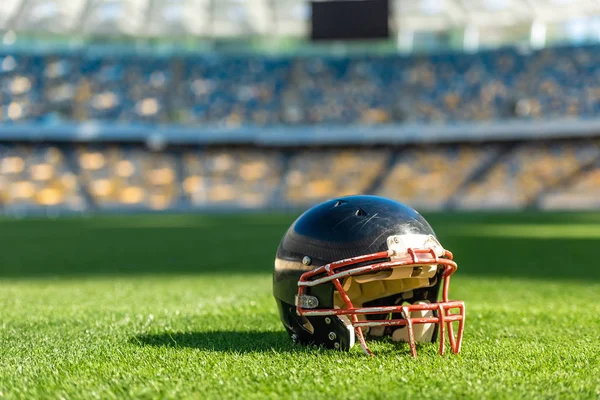College football is not just a gateway to the NFL but a way to teach the players many of the lessons they need to know to succeed there. For most students who want to play in the NFL, college football is where they get the necessary physical development, mental strength, and knowledge to have an improved chance of reaching the big leagues. Here are some ways that playing American football in college can prepare students for life in the NFL.
Developing Physical Conditioning
The most important part of college football is that young athletes must be fit. College footballers train every day to be as healthy and resilient as possible. College football strength and conditioning is modeled on what will happen in the NFL. Whether it’s weightlifting or agility drills, these programs help students gain muscle and increase their energy and speed – all vital qualities for an NFL career. College football players are often supervised by experts in the field of physical development and nutrition, paving the way for the high-stakes physicality of pro football.
Learning the Game’s Complexity
College football allows players to learn the tactical depth of the game. The number of plays, schemes, and formations involved in college football is much larger than in high school. At the college level, playbooks and situational awareness tactics are much more involved. Conquering this complexity makes athletes better prepared for the even more complex schemes of the NFL, where the faster pace of the game and the smarter minds of the defenders demand more rapid processing and deeper thinking. College football forces athletes to think through the game, enabling them to meet the cognitive challenges of the NFL.
The game’s complexity also has a downside that student-athletes are all too familiar with. It leaves little room for academic commitments. Even so, college football players need to keep their grades up if they want to stay on the team, which can lead to much stress and burnout. If you feel like you can’t perform equally well in both areas, consider using websites that will write an assignment for you. This can be a good solution for those times when you need to focus on your athletic duties.
Building Mental Toughness
Playing college football is as much about mental toughness as physical strength. Student-athletes walk the line between the classroom and the playing field, practicing for hours daily, traveling for road games, and performing under pressure. They’re learning to deal with pressure, and if they can handle pressure in college, they are more prepared to handle it in the NFL, where the level of scrutiny from the media, the fans, and each other is only magnified.
Exposure to High-Quality Coaching
During their time with the program, athletes work with highly skilled coaches who help them learn and build upon their talents. Coaches have one goal: to make their team as successful as possible. To achieve that, they must bring out the best in every player on their team. Most of the coaches have played or have coached at the professional level, which means that they have the experience of working with some of the best athletes in the country. Having such gurus working with college players can help them perfect their technique, increase their football IQ, and get individual feedback that will translate directly to the NFL. Exposure to the best coaching is one gap between amateur and pro football.
Networking Opportunities for NFL Prospects
College football provides athletes with the opportunity to network with scouts who hope to sign them for professional teams. NFL scouts constantly visit college games and practices to view potential draft picks. College athletes also have the chance to play in some of the largest bowl games and championships, which increases their visibility.
Here are a few key aspects of networking that help athletes gain NFL attention:
- Exposure to NFL scouts at major games and combines.
- Building relationships with college coaches who have NFL connections.
- Attending NFL-sponsored events and showcases.
- Participating in college pro days, where scouts evaluate talent.
- Engaging with media outlets to increase name recognition.
Developing Leadership and Teamwork Skills
Team play and leadership are important components of college football and the NFL. As college players progress throughout their careers, most are put in leadership positions, whether as captains of their teams or key figures on the field. These positions teach accountability, communication, and teamwork – all extremely valuable in the NFL, where a player’s ability to function within a system, inspire others, and set the tone for a team can be just as important as their physical talent. College football is the perfect place for students to hone these soft skills.
Understanding the Business of Football

College football helps players get an unfiltered view of the business side of the game, from contract specifics to sponsorships to travel logistics and more. Football is a job in the NFL, and knowing the business side of it – such as negotiating contracts or learning to control your finances – is essential. That’s why college football is an early step toward preparing players for the professional side of things.
Bridging College Football to NFL Stardom
College football provides a crucial environment for players who wish to make it to the NFL. It ensures they have the physical, mental, and emotional toughness to compete at that level. For the student-athlete who hopes to make it to the NFL, college is where they lay the groundwork for a potentially lucrative professional career.
For More Great Chicago Sports Content
Get the latest Chicago sports news, analysis, and breaking stories on the Bears, Bulls, Blackhawks, Cubs, White Sox, Sky, and more! Tap the star to add us to your favorites on Google News, so you never miss a story on your favorite Chicago teams.
Follow us on Twitter at @chicitysports23 for more great content. We appreciate you taking time to read our articles. To interact more with our community and keep up to date on the latest in Chicago sports news, JOIN OUR FREE FACEBOOK GROUP by CLICKING HERE




